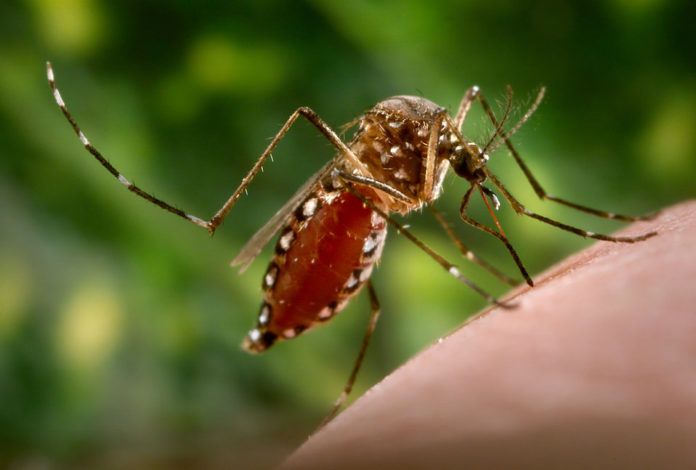AS THE floodwaters recede Council has issued a warning to residents in flood affected areas to do their part to prevent mosquito breeding
The floods have created ideal conditions for mosquito breeding and Council is calling on residents to do their bit by taking some simple precautions around their home.
The receding flood waters and heavy rains have left many temporary pools in paddocks and salt marsh areas and have filled containers around homes which provide perfect breeding habitat for mosquitoes.
“We are likely to see mosquitos in massive numbers after this flood and the bites are not just annoying, they have the potential to pass on serious diseases such as Barmah Forrest and Ross River Fever,” said Council’s Manager Building and Environmental Health David McNicoll.
“Council will continue to undertake carry out mosquito larvae control works in key breeding areas and is contracting outside assistance after local air-spraying aircraft were lost in the floods.
“An important message that we would like to send out to the community is that some mosquito species breed in water-filled containers around your home, such as buckets, old tyres, pot plant holders or poorly aligned or blocked roof gutters.
“It is very important that you don’t let your home be a haven for mosquitoes and their larvae.”
- What you can do:
- Keep indoors at dawn and dusk and wear long sleeve shirts and insect repellent if the mosquitoes are active.
- Ensure you cover all windows, doors, chimneys, vents and other entrances with insect screens that are in good condition.
- Keep your yard well-maintained, mow lawns regularly, and limit areas of dense vegetation.
- Clean up your yard and remove all water holding containers or rubbish and keep house gutters clean and properly aligned.
- Empty and refill pet water bowls and bird baths at least weekly.
- Ensure all openings to water tanks and septic tanks are screened securely.
- Place sand or fine gravel in pot plant trays, or flush them out weekly.
- Keep ornamental ponds stocked with native fish species that will feed on larvae.
For more information visit http://www.tweed.nsw.gov.au/PestManagement
